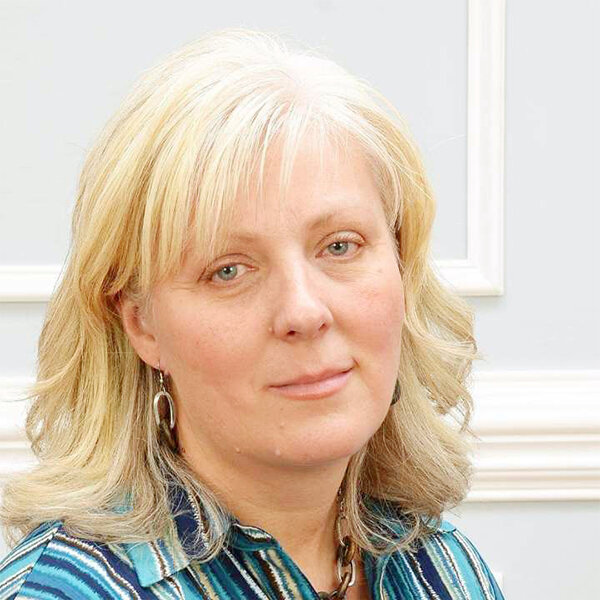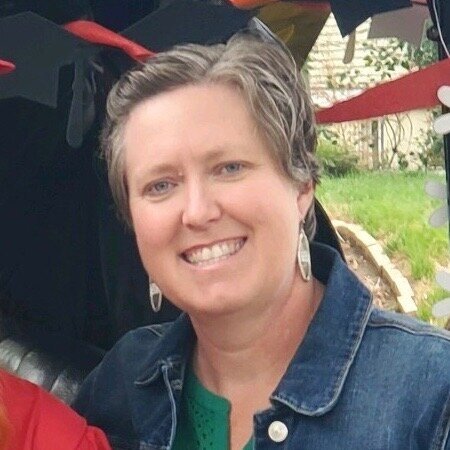Breakout Sessions
Continuing post-conference access to all breakout sessions is available for all general conference registrants.
Still Rising: Resilience in the Face of a Global Pandemic
We have been experiencing intense withdrawal from the myths of control and certainty since mid-March when our world changed overnight. This continues to cause and to exacerbate depression and anxiety for many individuals, as well as raising many existential questions. Based on the work Jenny has shared over the past several years in her popular talk "A Rising Tide Lifts All Ships: Building Resiliency and Creativity," this presentation invites us to look through a new lens informed by this collective experience as we consider how best to support the emotional well-being of both ourselves and our families.
Powerful Strategies to Enhance the Learning of Gifted and Highly Capable Students
Join international consultant and author (Stories with Holes, Teachers’ Guide to Trauma, Beyond Schoolwork, Creativity Day by Day) Nathan Levy in this dynamic and highly informative presentation. This workshop will give participants numerous practical ways to improve the learning of their gifted and highly capable students. Bring your thinking caps and your funny bones to this highly humorous presentation.
This presentation by noted educator and author Nathan Levy will showcase varieties of activities, materials and strategies that have proven to be effective in motivating and challenging gifted children to be better critical thinkers, writers and listeners. Participants will leave with abundant tools to add to their teaching arsenal when working with large or small groups. Attendees will be able to get their questions answered during and after the workshop.
Too Tired to Care: Twice-Exceptional Learners and the COVID-19 Pandemic
In this session, Dr. Marlo Payne Thurman will discuss the relationships between energy, heightened stress responses, attitude about learning, and the physical and mental health needs of twice-exceptional learners. This session will detail the largest energy consumers for the twice-exceptional population and will highlight concerning trends for 2e kids within changing, COVID-19 Educational paradigms. With the goal of keeping kids engaged in their own learning, Dr. Thurman will then share the tips and strategies that have helped her client's most within the past year.
Preventing Underachievement Before it Begins
Too often we fixate on how to reverse gifted students’ underachievement and forget to ask an important question, “How can underachievement be prevented?” Prevention-focused strategies are needed to proactively address underachievement before it starts. Prevention strategies focused on understanding why students underachieve and how to create a classroom environment that continually addresses these factors will be shared.
Transitions: How educators of GT can close out this wild year and start this fall, while supporting Executive Function
This year has been wild! And educators have such an opportunity to positively impact students with EF challenges. Here you will learn some unconventional ideas about how to do this. You will learn about how massively important it is to understand how the Nervous System influences learners. This includes learning how our narrative and stories influence the nervous system. How to respond rather than react. How mindfulness is tied into all of this. And how relationships and the way we were raised has influenced how we communicate unconsciously with our students, so we can make different choices and have more of the impact we want to have.
A Panel Discussion on Mental Health and Giftedness
Is there a connection between giftedness and mental health issues? Are some who are diagnosed with mental health issues actually "just gifted" and does such a distinction matter? Join us for our 6th annual Q & A, with panelists Harry Bruell, Jenny Hecht, and Dr. Marlo Payne Thurman, as we discuss the complex and often painful relationships between giftedness and mental health. With real-world questions and expert answers, this panel will continue the important discussion about the need for increased understanding about mental health in our gifted population.
Parent Workshop attendees are welcome to join this session. Confidentiality is expected at all sessions. Click here to submit your question for the panel in advance. This session will not be recorded for confidentiality reasons.
Frontloading and Talent Development for High Potential, Advanced, and Gifted Writers
Between the absence of hard data and the irregular occasions to demonstrate writing beyond class assignments, determining the best methods for frontloading advanced writing opportunities can be a challenging puzzle for teachers. In this session we will explore a series of student-tested lessons to uncover writing talent. Come for the resources and ideas, stay for the writing fun!
Unraveling Many Misunderstood Aspects of Giftedness Related to Perfectionism, Procrastination, Imposter’s Syndrome, and Self-Esteem
Giftedness goes beyond learning in the classroom, it is a way of being and navigating in the world. Gifted people express great gifts and challenges where their efforts do not match their imagination and original ideas. Often these individuals appear as asynchronous and test all over the map leaving them deflated, anxious, drained, and demotivated. They tend to be more prone to anxiety due to expanded receptivity, processing, and neuroanatomy. This leads to the development low self-esteem, where they less likely to achieve personal and academic success, and can experience challenges with communication and relationships. Gifted people can experience stress and trauma causing procrastination, perfectionism, and imposter syndrome. Understanding the thinking and behaviors related to perfectionism and imposter syndrome helps guide gifted people to conquer it. Learn the latest positive practices to wire the mind and build resilience. When we support the mind, body, and spirit of an individual, they are unbound and thrive.
Using the Schoolwide Enrichment Model (SEM) to Create Future Leaders and Change Agents
How Type III Enrichment Inspires Service, Social Responsibility, and Using Talents to Improve the Planet
In this session, learn how educators and parents can encourage children to use their talents to address and solve problems in their school and community. Learn how to help students identify problems and use specific pedagogy (Types I, II, and III) to focus opportunities, resources, and encouragement on developing a socially constructive product or service that brings about positive change locally and in larger audiences. Learn how young people all over the world, with specific examples, have used their talents to make the world a better place.
Gifted Education in Colorado: Lessons Learned From the Pandemic
What lessons have we learned about gifted programming in CO as we have been required to reexamine our delivery, resources and expectations to accommodate gifted children during the unexpected and unimaginable? This session will share the current state of gifted programming in Colorado in the context of the pandemic's impact. We will explore the strengths and challenges which have arisen in how we program for our gifted learners as a result of the past year, as well as where we go from here.
Building STEAM and SEL Through Community Collaboration, You’re Not Alone! (Panel)
Join us to learn how to meet and sustain your gifted students’ social-emotional and cognitive growth while connecting their core academic learning to future STEAM careers in ways that are relevant and personally engaging for them. Learn about the value of a STEAM Ecosystem (one that sets up professionals in STEAM fields to work alongside your students) and how to develop such a program. We focus on Human Centered Design Thinking strategies, integrating specific psycho-social skill building strategies, and on how to find community professionals who will share their time, expertise and heart with students.
Each attendee will be provided with Dramatic Results’ STEAM Ecosystem Mapping Tool to take back to their communities to: 1) Identify potential collaborators in their community (“community” includes local, regional, national and even international), strengths and challenges posed with each potential collaborator, 2) establish shared goals for their STEAM Ecosystem, 3) select a hub organization for their STEAM Ecosystem, and 4) learn how to adapt their STEAM Ecosystem to include both in-person and virtual engagement and program delivery. Participants will learn specific, evidence-based, strategies to find, recruit, engage and sustain their own STEAM Ecosystem that results in culturally engaged students who can see and understand first-hand the results of their learning!
Lunchtime Session: Mindful Compassion, A Meditation for Coming into the Heart
Learn the power of mindfulness, by redirecting the mind into the presence of the breath and heart awareness. A wealth of studies support how meditation produces positive neurobiological and neurophysiological effects including brain expansions, balancing neurotransmitters, and stabilizing mood– all of which correspond with a calmer brain. Meditation improves self-awareness, intuition, compassion, communication skills, concentration, attention, mental flexibility, emotional balance, fear regulation, and physiology. Join Dr. Tetreault in a guided meditation as she fuses neuroscience with the ancient art of meditation to safely ground you in the present. By cultivating more compassion, we begin to realize the joys and gratitude of being.
Understanding your gifted child from the inside-out: A guide to the social and emotional lives of gifted kids
Parents of gifted children and teens have many questions about how best to meet their intellectual and emotional needs. They want to know what giftedness entails: is it only intellectual ability, or something more? They want to know how to advocate for their gifted child in a school setting mired in “bringing up the bottom” rather than “raising the bar” at the top. They want to know how to set expectations that are appropriate and attainable. And they want to know how to juggle the wide range of emotional intensities that often “comes with the territory” in raising gifted kids. This session addresses each of these issues…and more.










